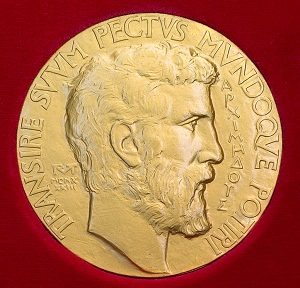Kurdish-Iranian Refugee Bags the Fields Medal
Cauchar Birkar has become the second Iranian, after the late Maryam Mirzakhani, to win the Fields Medal, the most prestigious prize in the field of mathematics, awarded under the age of forty.
Caucher Birkar – a Kurdish refugee to the UK – is one of the four recipients of the 2018 Fields Medals. Caucher Birkar was given the award at the 2018 International Congress of Mathematicians was held during 1-9 August 2018 at Rio De Janeiro, Brazil (http://www.icm2018.org/ and http://www.mathunion.org/).
The citation for his award released by the International Congress of the International Mathematical Union reads “for the proof of the boundedness of Fano varieties and for contributions to the minimal model program.”
The Fields Medal (in honour of Canadian mathematician John Charles Fields, 1863-1932) is a prize awarded to two, three, or four mathematicians under forty years of age, to recognize outstanding mathematical achievement for existing work and for the promise of future achievement.
The Fields Medal was established in 1936, and since then has been given to sixty persons. The Fields medals, often called the Nobel Prize of Mathematics, are awarded every four years. Unlike the Nobel Prize, the award money of US$13,700 is appreciably less.
Birkar was born in July 1978 in Marivan, a Kurdish city in western Iran (close to the Iraq border), to Mr. Majid Birkar and Mrs. Sakina Birkar. Caucher has an elder brother, Haidar; sister elder to him Leila; and a younger brother, Shakhawan. Marivan was heavily affected by the eight-year-long Iraqi war on Iran during the 1980s. He grew up in a rural subsistence farming village in the ethnic-Kurdish region of western Iran.
Birkar recalls his childhood: “My parents are farmers, so I spent a huge amount of time actually doing farming,” he says. “In many ways, it was not the ideal place for a kid to get interested in something like mathematics.”
He added that, while in the middle-school, his elder brother, Haidar, introduced him to more advanced mathematical techniques (differentiation, integration,…) far beyond the classroom. His curiosity was awakened by algebraic geometry, the same interest that, in that same region, centuries earlier, had attracted the attention of greats like Omar Khayyam (1048-1131) and Sharaf al-Din al-Tusi (1135-1213).
He obtained the bachelor’s degree from the University of Tehran, Iran in 2000. Same year, he took asylum in the UK. He enrolled in the University of Nottingham and obtained PhD in 2004 under the supervision of Ivan Fesenko. He is currently a full Professor at the University of Cambridge, UK. He has an Erdős number of four. Caucher’s wife, Tarn is from Thailand and they are blessed with a four your old son, Zanko.
Birkar recalls that at Tehran University he had seen the portraits of past Fields winners and had been inspired to establish himself as a mathematician.
“To go from the point that I didn’t imagine meeting these people to the point where someday I hold a medal myself — I just couldn’t imagine that this would come true.”
Birkars’ doctoral advisor, Ivan Fesenko highly praised Birkar’s talent and said, “He is very, very smart; you start to talk with him and you recognize that he can read your thoughts several steps ahead.”
“But he never uses this to his advantage; he is very, very respectful and he gently helps people to develop further,” Fesenko added.
The three Co-winners of Caucher Birkar are: Alessio Figalli, from Italy; Peter Scholze, from Germany; and Akshay Venkatesh, from Australia.
Venkatesh is the second person of Indian origins to win the Fields Medal after Manjul Bhargava in 2014. In 2014, Maryam Mirzakhani, of Iranian origin, became the award’s first and so far, the only woman winner. She died in July 2017 after a battle with cancer at the ager of forty.
References:
- Sameen Ahmed Khan, Death of a Science Icon: Maryam Mirzakhani (1977-2017), Young Muslim Digest, Vol. 39, Issue 9, pp. 40-41 (September 2017).
The author is with the Department of Mathematics and Sciences, College of Arts and Applied Sciences, Dhofar University, Salalah, Sultanate of Oman. He receives his mail at rohelakhan@yahoo.com
 The Fields Medal (front): The head represents Archimedes facing right. The inscription reads: Transire summ pectus mundoque potiri (To transcend one’s spirit and to take hold of, or to master, the world).
The Fields Medal (front): The head represents Archimedes facing right. The inscription reads: Transire summ pectus mundoque potiri (To transcend one’s spirit and to take hold of, or to master, the world).

The Fields Medal (back): In the background there is a representation of Archimedes’ sphere being inscribed in a cylinder. The inscription reads: Congregati ex toto orbe mathematici ob scripta insignia tribuere (The mathematicians having congregated from the whole world awarded this medal because of outstanding writings).

